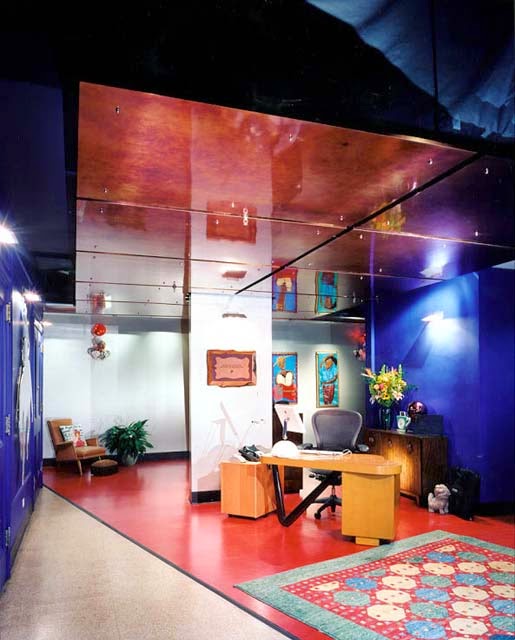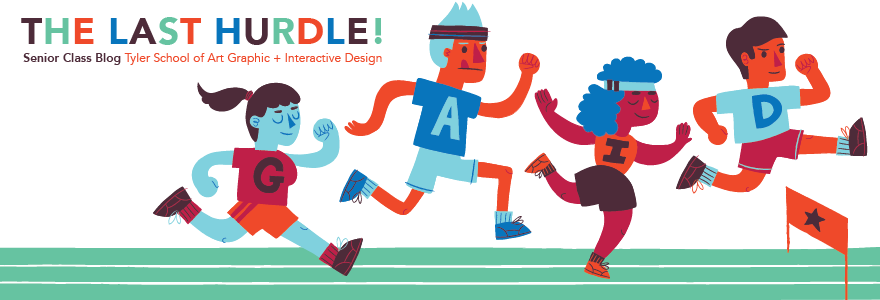
So it's time to roll the sleeves up and find a job. Endless choices; however, the question is,
“what would be the best place for you?.” There are different workplaces available out there such as design firms or studios vs. advertising agencies. Even though they perform similar tasks and have the same goals the primary difference comes down to organizational size, costs, and workflow. The Studio is a small collective of approximately 1 to < 10 very creative people, whereas agencies are generally composed of a group of up to 30 or more people or more with unique skill sets all contributing together to provide the ultimate experience to clients. Therefore, agencies are much better equipped to “take on larger projects, offer more services than small studios and even fewer freelancers can hope to attain.
I looked at Red Tettemer that has top talent, big clients and a great company culture. They build ideas on every platform and through every discipline from Brand Planning to Interactive; from PR, Social Media and Community Building to Design; and Media Planning, and from Buying to Broadcast Production. Their work is amazing because they work hard to provide the client an unforgettable and unique design. Agencies often tend to have different departments under their umbrellas, such as public relations, marketing and research, and creative services. This allows them to work faster and better. Lists of their clients include big companies such as Century 21, Dial for Men; Under Armour; Planet Fitness; Reyka Vodka; Right Guard; Coty Brands, TuB Gin and FOX Networks. These are the big companies with big budget and big bucks are involved.
 |
| Red Tettemer Inc |
The smaller studios have much more cozy and warm feelings because of how closely together they work on each project. They handle their own bills and deal with customers in person, taking the time to make good relationships with people, to discover their client’s issues and the languages they used to describe their projects. Their art directors work closely across the firm to explain the needs of the client to the rest of the team. Smaller teams adapt to change faster, find new ways to work, and stay competitive. They all share the need to build network and to make sure to spread out the word about the services they offer and how they can help clients. Many people are misled thinking that smaller studios only handle small-scope projects, and that is only because they cannot handle too many clients at the same time.
 |
| Heads of State |
 |
SK Designworks
|

Knowing and understanding these differences of the workplaces definitely help to get a better understanding when applying for them.
And even though you might not get your dream job right away, it would be very beneficial to try working in as many different paces as possible to gain more experience.
Such act eventually will lead to the perfect fit job. Good luck and have fun!
 So it's time to roll the sleeves up and find a job. Endless choices; however, the question is, “what would be the best place for you?.” There are different workplaces available out there such as design firms or studios vs. advertising agencies. Even though they perform similar tasks and have the same goals the primary difference comes down to organizational size, costs, and workflow. The Studio is a small collective of approximately 1 to < 10 very creative people, whereas agencies are generally composed of a group of up to 30 or more people or more with unique skill sets all contributing together to provide the ultimate experience to clients. Therefore, agencies are much better equipped to “take on larger projects, offer more services than small studios and even fewer freelancers can hope to attain.
So it's time to roll the sleeves up and find a job. Endless choices; however, the question is, “what would be the best place for you?.” There are different workplaces available out there such as design firms or studios vs. advertising agencies. Even though they perform similar tasks and have the same goals the primary difference comes down to organizational size, costs, and workflow. The Studio is a small collective of approximately 1 to < 10 very creative people, whereas agencies are generally composed of a group of up to 30 or more people or more with unique skill sets all contributing together to provide the ultimate experience to clients. Therefore, agencies are much better equipped to “take on larger projects, offer more services than small studios and even fewer freelancers can hope to attain. 





Anna –
ReplyDeleteThis is a great research topic for soon-to-be grads. First off, I have some writing comments:
- Be sure to break up bigger sentences and separate ideas with commas:
“Even though they perform similar tasks and have the same goals (,) the primary difference comes down to organizational size, costs, and workflow.”
-“ A studio” instead of “The Studio”
- Get rid of the typo quotation mark here, and replace the comma with “and” : “Therefore, agencies are much better equipped to (“)take on larger projects (and) offer more services than small studios and even fewer freelancers can hope to attain.”
-“I looked at Red Tettemer (which) has top talent, big clients and a great company culture”
- Instead of “These are the big companies with big budget and big bucks are involved”, it should just read, “These are big companies with big budgets”.
-“They all share the need to build network(s)…”
-“(This) will lead to (a job that will be the perfect fit for you.”
Be sure to re-read the whole article a couple times to make sure the sentences flow properly. The corrections above should help.
This is a great outline of some of the differences between big agencies and small studios. Perhaps you could frame it more from the perspective of a soon-to-be grad. For example, what are the pros and cons for a fresh, new designer going into one of these companies? Can a small agency be too limiting? Can a big agency make you feel like too much of a small fish in a big pond? These are all important considerations that could vary from person to person.